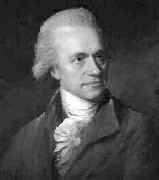Person: Herschel, William

William Herschel was a German-born composer who turned to astronomy. He is best known for his discovery of Uranus.
Mathematical Profile (Excerpt):
- We will use the name William Herschel throughout this article.
- William proved a talented pupil at the school and by the age of fifteen had learnt all that the master could teach him.
- William's first years in the Hanoverian Foot Guards were peaceful but in 1756 Hanoverian forces were sent to England to augment the English forces to prepare for an invasion by the French.
- The invasion by the French never happened but William took the opportunity to learn English.
- Isaac, who did not want to see his sons suffer in this way, advised William to run off.
- William went to Hanover but, having no passport, thought he was in danger and returned to the army.
- A little while later William requested an official discharge.
- William became a music copyist while Jacob gave lessons and sometimes performed.
- This period beginning in 1760 was one when William composed symphonies.
- However, William's passion for music was becoming less pronounced and he spent more and more of his spare time studying mathematics.
- This was a much more attractive offer but William felt that he had to be fair to Halifax so he remained there for a few months, only leaving for Bath in December of 1766.
- In Bath William rented a home in Beaufort Square.
- The organ was completed by October 1767 when the choir he had trained performed the Messiah while William performed one of his organ concertos.
- Back in Bath William gave Caroline lessons in singing, playing the harpsichord and in bookkeeping.
- In addition to mathematics, William started to become interested in astronomy and purchased astronomy books and tables.
- By the end of 1773 the passion for astronomy had firmly gripped him and had taken over the lives of the Herschels.
- In September William hired a small Gregorian telescope of the style designed by James Gregory.
- Its performance was not particularly good so that William decided that, rather than make lenses, he would try making his own mirrors.
- On 29 September 1777 the Herschels moved to 19 New King Street well situated in the centre of Bath, yet with a garden where William could observe with his telescopes.
- However, the house had no garden and William had to set up his telescopes in a garden behind the Crescent which he hired.
- He met several important people at this time including William Watson (1744-1824) who invited him to join the Bath Literary and Philosophical Society.
- Three astronomy papers were communicated by William Watson to The Royal Society.
- At the beginning of March 1781 the Herschels moved back to 19 New King Street.
- William had been examining double stars, that is two stars appearing close together in the sky.
- Interestingly this letter is addressed to "Mr William Herschel, Musician, near the Crescent, Bath." William communicated his discovery to the Royal Society and his paper was read on 16 April.
- Offered a pension of £200 a year by the King on condition he came to live near Windsor, William made his last professional musical appearance on 18 May 1782 at St Margaret's Chapel.
- Although William is best known for his discovery of Uranus, many consider his greatest achievement was the discovery of infrared radiation in 1800.
- In 1802 William visited Paris where he met and had discussions with Jérôme Lalande, Pierre Méchain, Jean-Baptiste-Joseph Delambre, Pierre-Simon Laplace and Charles Messier.
- In the spring of 1807 William had a serious illness.
- In April 1820 the Council of the Astronomical Society asked William to become their first President, stating that he would not be required to give any active service.
- William refused but accepted in the following year becoming the Royal Astronomical Society's first President.
- Henry Thomas Colebrooke took the chair at meetings, William having said he would not play an active role.
- Craters on the Moon and on Mars have been named after William Herschel.
Born 15 November 1738, Hanover, Electorate of Holy Roman Empire (now Germany). Died 25 August 1822, Slough, England.
View full biography at MacTutor
Tags relevant for this person:
Astronomy, Origin Germany, Physics
Thank you to the contributors under CC BY-SA 4.0! 

- Github:
-

- non-Github:
- @J-J-O'Connor
- @E-F-Robertson
References
Adapted from other CC BY-SA 4.0 Sources:
- O’Connor, John J; Robertson, Edmund F: MacTutor History of Mathematics Archive
